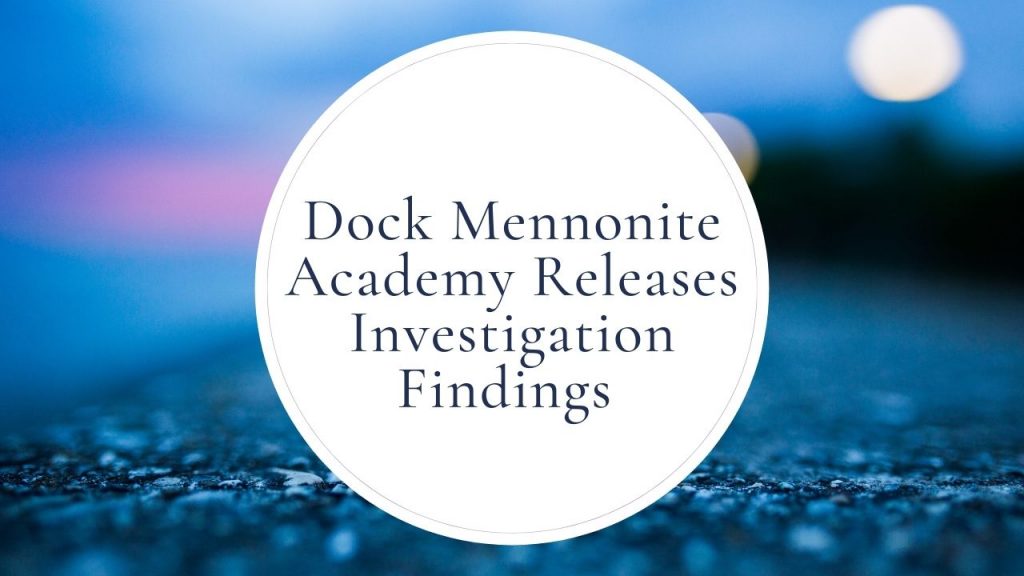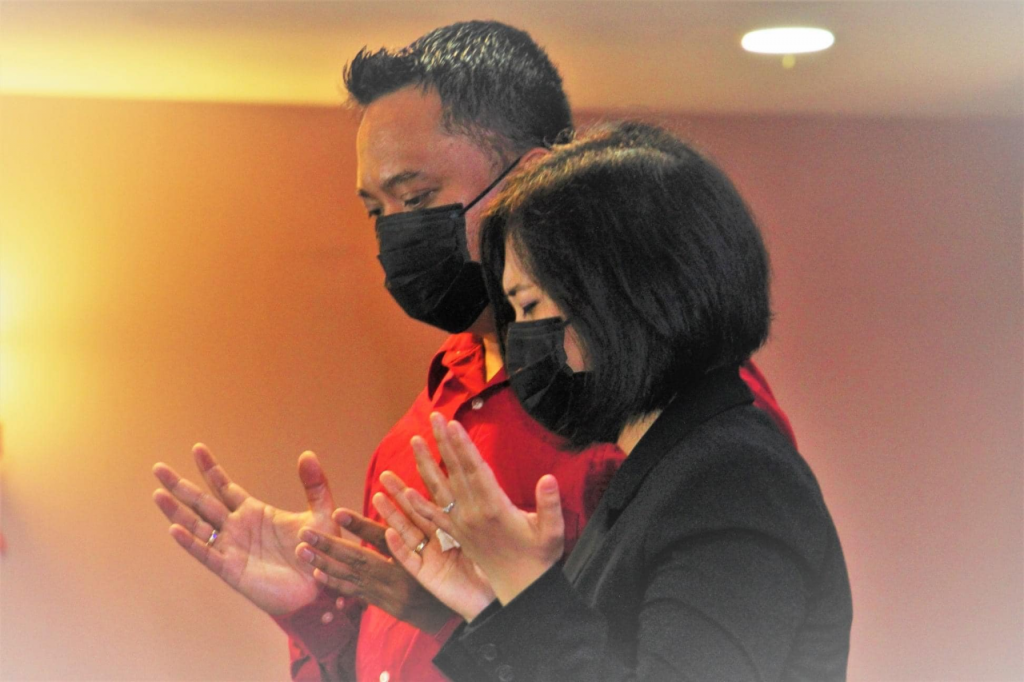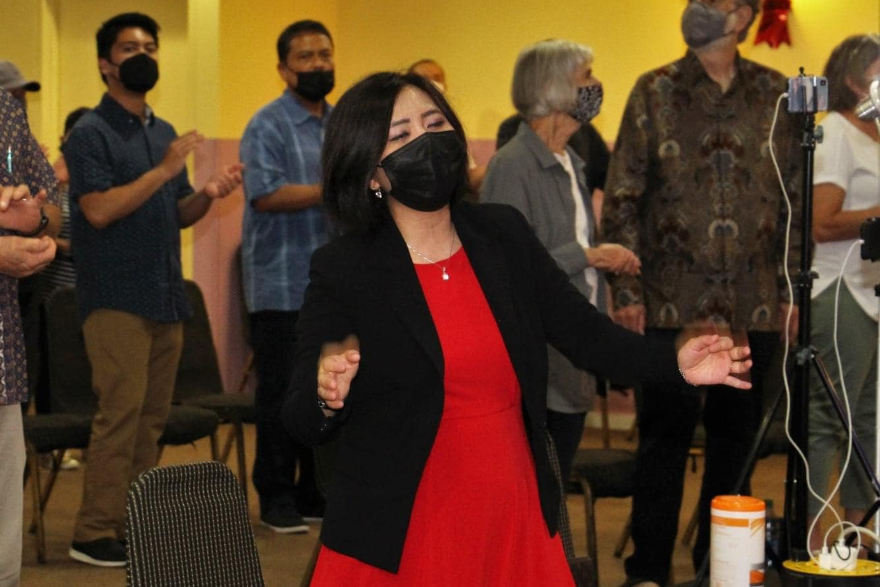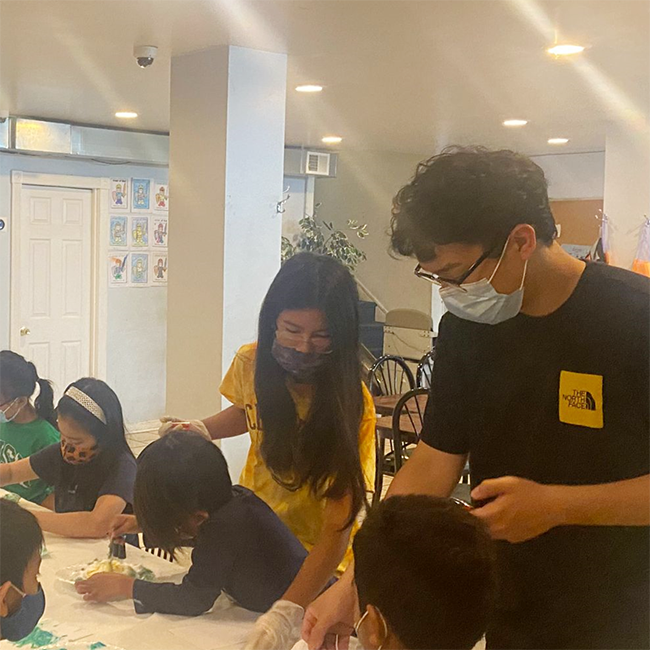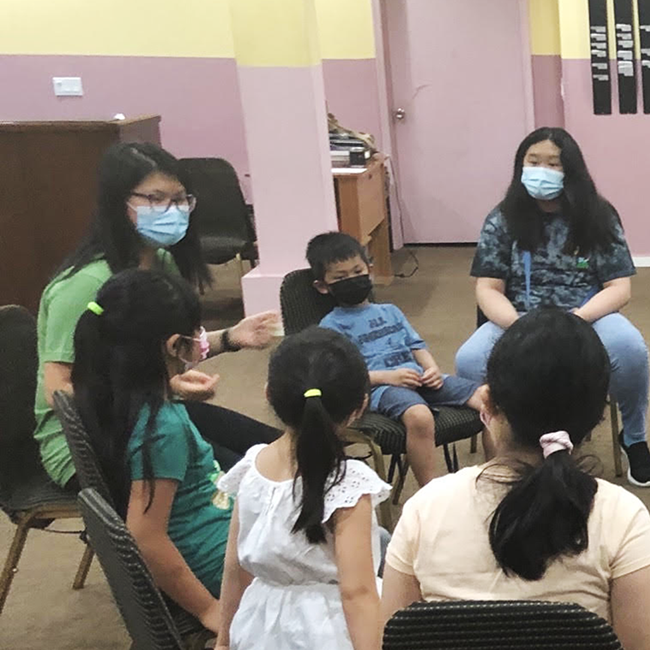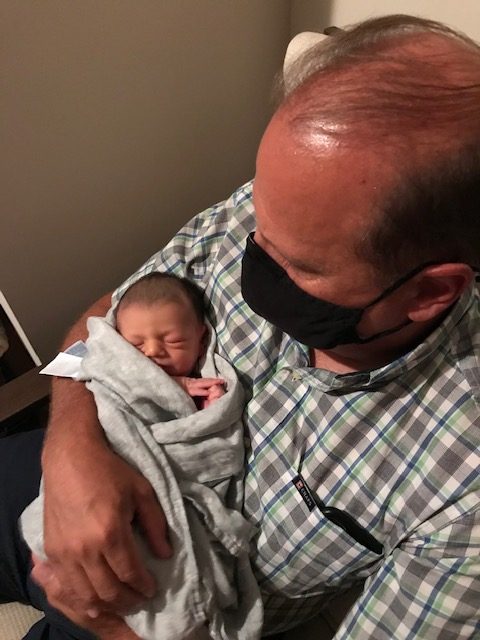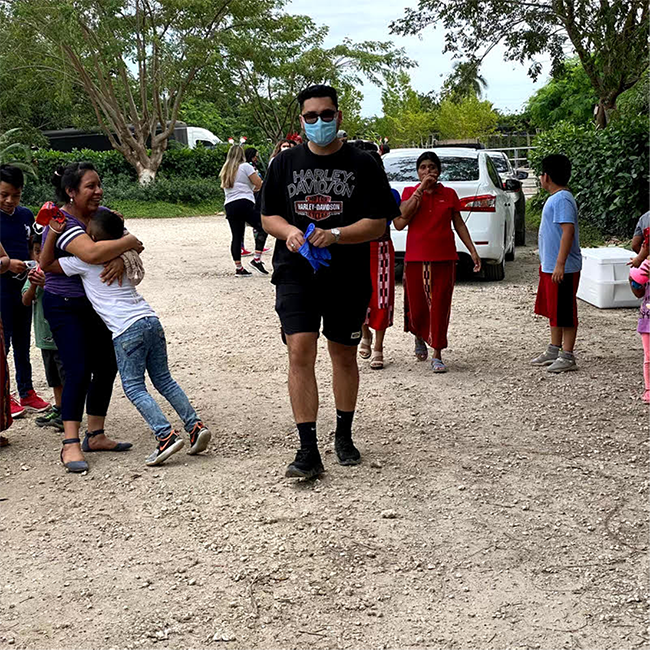Editor’s Note: This summer, six young adult interns have served Mosaic congregations. Five interns are participating in the Summer Service Program, a ten-week program for young adults of color sponsored by Mennonite Central Committee (MCC). This article highlights two of Mosaic’s summer interns. To read about the other four interns, read the first part and the second part of this series.
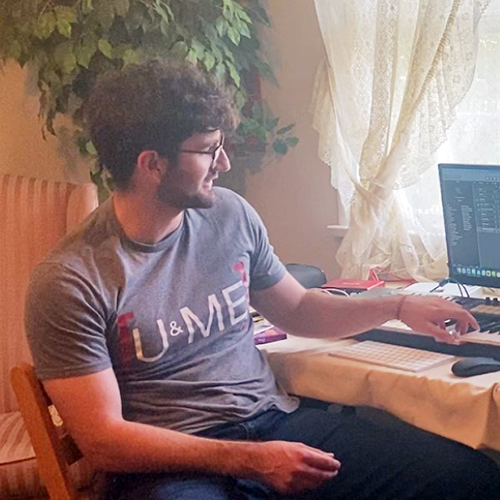
Spencer Garrison has spent this summer as a pastoral intern with Whitehall (PA) Mennonite Church and Ripple (Allentown, PA). He also has been serving with Ripple Community Inc, Ripple’s community center, sometimes helping in the kitchen and spending time with people. On Wednesday evenings, Garrison works in Ripple’s community garden and then helps distribute food to people in need. Some days, he helps the pastors lead worship or devotions.
Garrison grew up on a farm in West Salem, Ohio, and wanted a broader cultural experience this summer than his rural upbringing. In high school, Garrison became interested in Spanish and speaking with people who were different than him. While studying Spanish and business at Bluffton (OH) University, he noticed something that bothered him.
“Our chapels [at Bluffton] aren’t very diverse,” he said. Kingdom building is an important part of Garrison’s faith. “I don’t want culture or language or anything to be a barrier to enter the Kingdom. Everyone deserves a chance to come see what it’s all about.”
Garrison described another challenge for him: wanting to do work that matters in a short amount of time. He has learned to emphasize “restorative practices, not just charity work.” Living with and talking to people are indispensable to him while ministering.
In June, Garrison attended a COVID-19 trauma healing workshop for Mosaic leaders. He felt a good sense of community, however, he was the youngest person there, as well as the youngest person working at Ripple and Whitehall this summer. Like race, culture, or language, he doesn’t want age to be a barrier to serve and learn. Young people are a large, under-used force, and he hopes that they will be more involved in future Mosaic activities.
Garrison is a whiz at music production, loves to worship, and enjoys hiking, singing, and playing guitar. He also plays baseball for Bluffton University.

Rachel Hannanto is a Summer Service Program intern, serving as a Sunday school teacher’s aide, at International Worship Church in San Marino, CA. Hannanto is supporting five to seven years old this summer. Since children are not yet vaccinated for COVID-19, Hannanto’s work has primarily been done remotely. She researches and creates content for basic biblical stories that emphasizes wholesome deeds, assigns homework, requests talent videos (song, dance, etc.), and gives weekly presentations through Zoom.
Originally she felt challenged to simplify concepts and condense her vocabulary in her ministry to children. However, while working through these challenges, she discovered that the children are much smarter than they get credit for from adults.
International Worship Church is Hannanto’s home church, where her father, Pastor Buddy Hannanto, has pastored for over 25 years. Hannanto says she is proud to support and serve in her church.
Hannanto has learned that positive energy and confidence in your leadership can truly impact others. “Always approach the next opportunity that comes your way with courage and optimism,” she says. Hannanto has always believed that her goals will ultimately revolve around good people she loves and can laugh with. “I want to be a radiating, confident leader who can aid those who are overlooked and in need,” shares Hannanto. “The people you spend time with and create memorable relationships with … are what matters most.”
Hannanto and has an education background from Graziadio Business School at Pepperdine University. She is developing a pollinator-friendly backyard, directly supporting the endangered Monarch Butterfly population. She enjoys tending her garden, eating sushi, reading or watching anything in the horror genre, and swimming.

